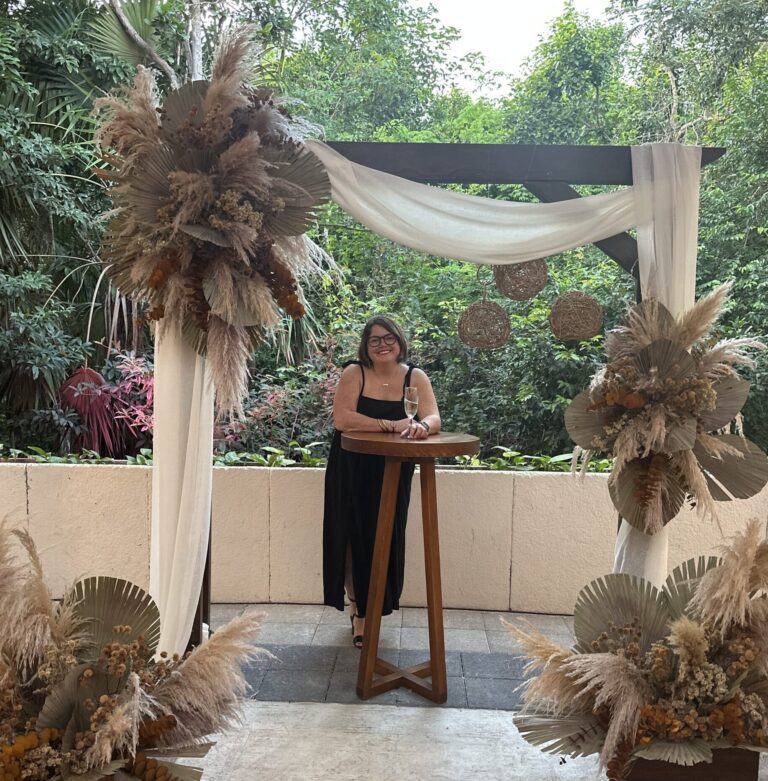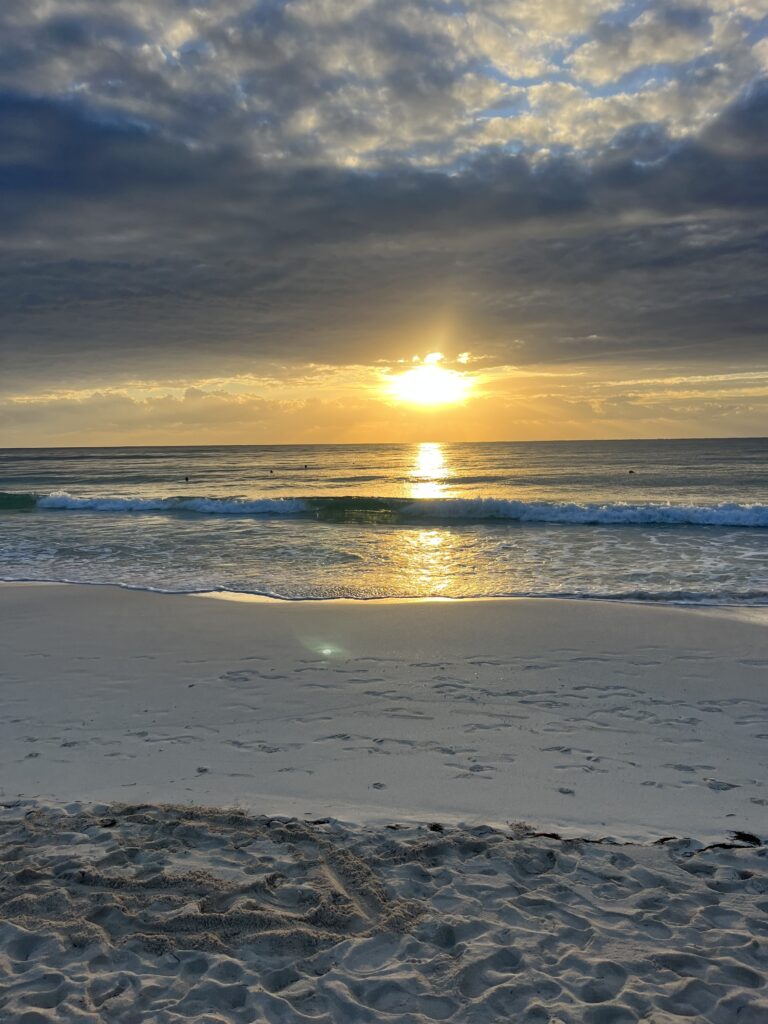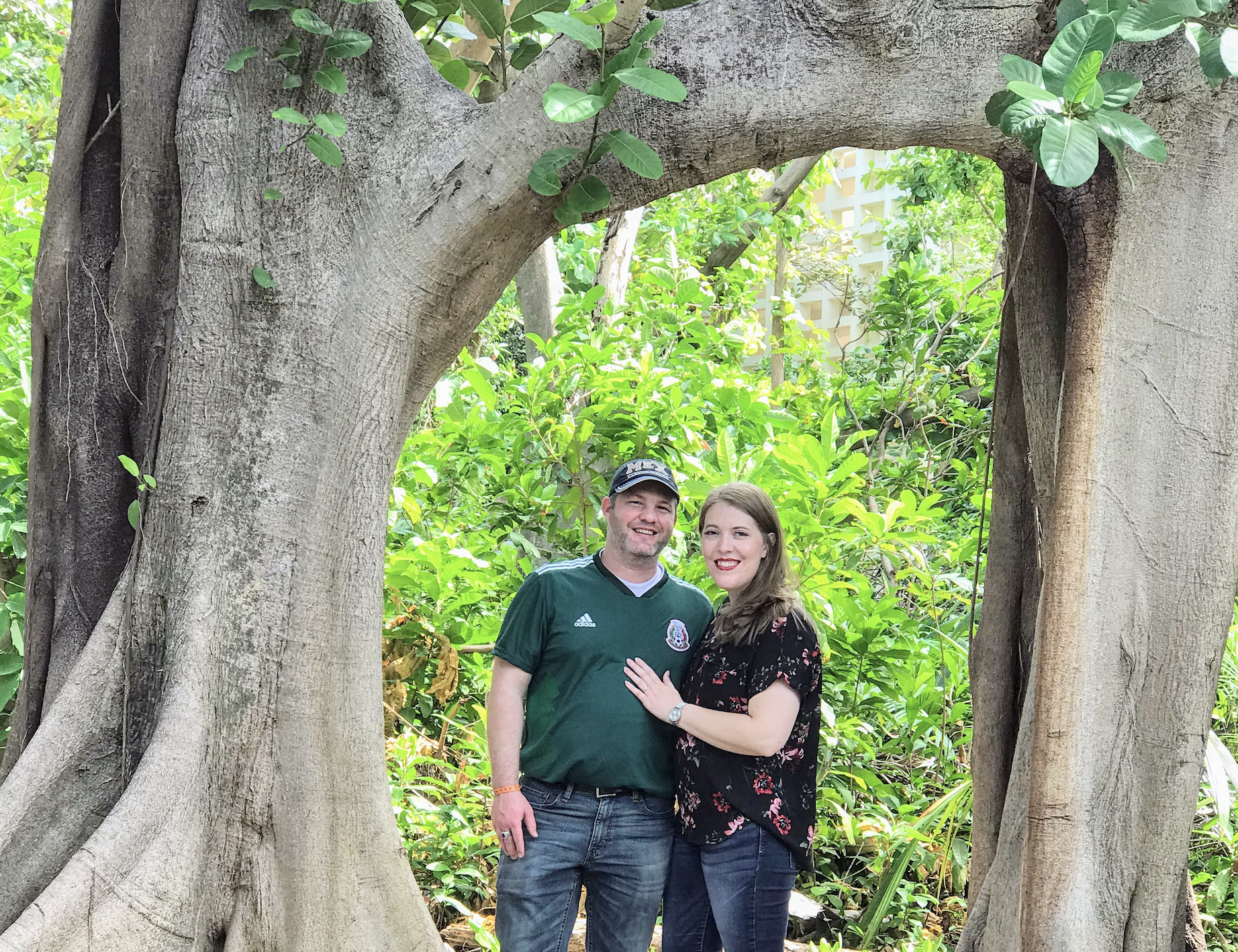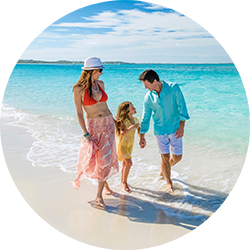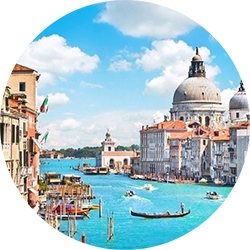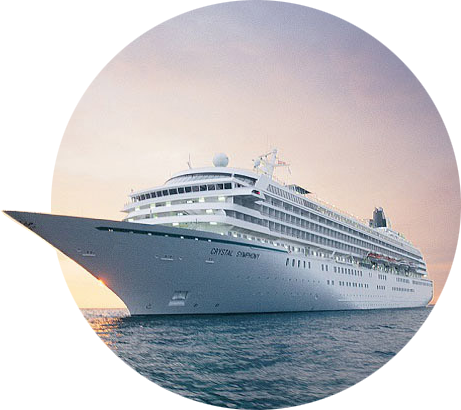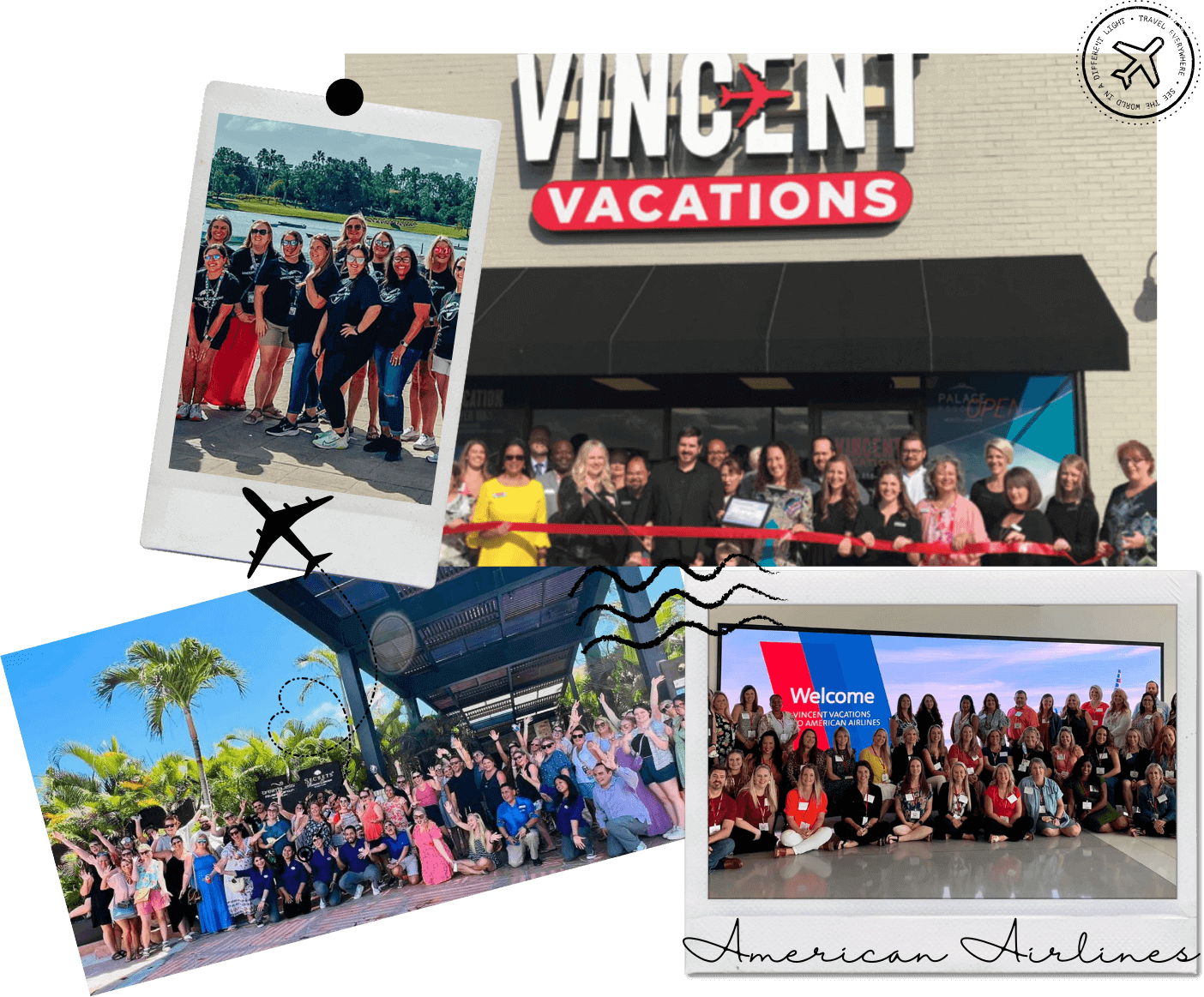We recognize that vacations are not just an investment, but often the highlights of our lives, and we take that responsibility seriously. We want to ensure you have the best vacation experience.
Interested in a job in travel? Click here to learn: How to Become a Travel Agent
Alajuela is the third largest city in Costa Rica, and located northeast of the capital San Jose. A main attraction to visit in Alajuela is La Paz Waterfall Gardens; this ecological attraction is trailed with five waterfalls and countless species of w...
Categories: Alajuela
Arenal, in Costa Rica, is the site of one of the most active volcanoes in the world.
On almost a daily basis, red-hot rocks crash down its steep slopes and volcanic grumbles produce huge ash columns above the crater.
In addition to the volcano, t...
Categories: Arenal
Categories: Arenal Dam Dock
Categories: Arenal Hanging Bridges
Arenal volcano is the most spectacularly active in Costa Rica. Hotels in the region tout their views of the lava flows and red hot boulders ejected from the volcano glowing in the darkness. Although eruptions are the main attraction, you should be aw...
Categories: Arenal Volcano National Park
Visit a sugar cane mill in season, a coffee facility where Costa Rica's superior beans are prepared, and a processing plant for the flavorful macadamia nut. One of the principal attractions of the area is a thrilling ride in a river raft or a kayak. ...
Categories: Atirro
Categories: Bahia Culebra
With the tallest primary rainforest on the planet, the national forest in Abahia Drake is home to many endangered animal and bird species as well as a huge number of indigenous wildlife and flora. From Drake Bay you can also visit the biological rese...
Categories: Bahia Drake
Categories: Bahia Huevos
Bahia Paraiso is located on the far western edge of Osa Peninsula just bordering the Corcovado National Park to the south. Due to it's remoteness, it is only possible to get to the lodge by boat or helicopter charters. Getting to Bahia Paraiso is a w...
Categories: Bahia Paraiso
Categories: Bahia Potrero
Bajos del Toro sits in Costa Rica, is situated next to the Poas Volcano National Park, Juan Castro Blanco National Park, and the Bosque de Paz Rain/Cloud Forest Biological Reserve. Outdoor activities are plentiful with rugged trail systems to ex...
Categories: Bajos del Toro
Barra Honda National Park, a small park 110 mi/175 km northwest of San Jose on the Nicoya Peninsula, protects the flora and fauna of the tropical dry forest and has an extensive network of caves. You can hire local guides to lead you through the cave...
Categories: Barra Honda National Park
Bosque de Paz Reserve is a lush jungle paradise in the middle of Costa Rica, only 1 ½ hours from San Jose. Visitors to this private ecological reserve experience natural beauty, crystal waters and fresh air of the mountains while surrounded by...
Categories: Bosque De Paz
A largely undeveloped park, Braulio Carrillo National Park lies in the mountains 40 mi/65 km east of San Jose on the way to Limon, and is sometimes referred to as "the lungs of San Jose." Some of its beautiful yet rugged mountain scenery and waterfal...
Categories: Braulio Carrillo National Park
Located on the Carribean coast of Costa Rica, Cahuita was founded by a turtle fisherman William Smith in 1828. The little village is laid-back and vibrant submerged in Creole culture and Afro-Caribbean heritage. Visitors can hike the jungle, snorkel ...
Categories: Cahuita
Caletas Beach in the south Western part of Nicoya Peninsula, in Costa Rica is home to many unspoiled beaches. Caletas Beach is a quiet secluded beach that offers a beautiful sandy shore, and peaceful relaxation. Caletas Beach also has some of th...
Categories: Caletas Beach
Not only do the waters surrounding Caño Island contain some of the most abundant and varied marine life in the world, but the island also possesses several pre-Colombian archeological artifacts. These artifacts can be explored on several hikes throug...
Categories: Cano Island
A haven for birds and wildlife, Cano Negro National Wildlife Refuge is located in north-central Costa Rica, 120 mi/195 km northwest of San Jose. The best way to see it is from the water—narrow boats leave from Los Chiles near the Nicaraguan border fo...
Categories: Cano Negro
Carara Biological Reserve is a tropical dry forest and a nature enthusiasts dream. The reserve is a region of majestic mountain ranges, marshes, verdant forests, rivers and ravines, and archeological sites. The reserve houses a very diverse range of ...
Categories: Carara Biological Reserve
Categories: Carrillo Beach
Cartago is Costa Rica’s first capital and its oldest capital until 1823. Cartago was founded by Juan Vasquez de Coronado in 1563. It’s an old community that sits at the Irazú Volcano. Cartago’s rich soil is ideal for agricult...
Categories: Cartago
Casa de Orquideas also known as the real-life Garden of Eden, is a short 25 minute boat ride from Puerto Jimenez, Costa Rica. Casa de Oruideas was founded 30 years ago by American expats Ron and Trudy McAllister. Self-taught botanists, the pair have ...
Categories: Casa Orquideas
Categories: Casa Saladero
The main attraction in Chirripo National Park, on the northwest corner of La Amistad International Park (60 mi/100 km southeast of San Jose), is Mount Chirripo. At 12,600 ft/3,840 m, it is Costa Rica's highest peak. From Mount Chirripo's summit, you ...
Categories: Chirripo National Park
Cocos Island National Park might be thought of as the little Galapagos of Costa Rica. Declared a UNESCO World Heritage Site in 1997, the island is the northernmost and oldest of a chain of volcanoes, mostly submarine. Cocos Island is one of the world...
Categories: Cocos Island National Park
Quick Facts
Passport Info:
To enter Costa Rica, U.S. nationals need to present a valid passport and a return ticket to exit the country within 90 days — no visa is required.
Official currency:
US dollars are accepted nearly eve...
Categories: Central America
Costa Rica’s famous Coter Lake lies along Costa Rica’s beautiful Northern Pacific mountains, an exclusive location with breathtaking views of Arenal Volcano. Coter Lake is next to the Ecolodge’s primary forest private reserve. This is the perfect p...
Categories: Coter Lake
Diamante Verde (Green Diamond) has a set of ten amazing waterfalls, and is a trip for the adventurous. Hike up a lush mountain in Costa Rica’s southern zone while enjoying tropical fruits and panoramic views, to ultimately camp overnight in a h...
Categories: Diamante Verde
Drake Bay, named after Sir Francis Drake, is an outdoor enthusiasts dream. Naturalist tours lead by professional entomologist are a fun and fascinating way to learn more about the bay. There are also diving adventures, and mountain biking expeditions...
Categories: Drake Bay
Surrounded by steep hills and tropical rain forest, the chamring town of Golfito has a sheltered position on the Golfo Dulce on the Pacific coast of Costa Rica. From here you can explore the Corcovado National Park, the black sand beach at Zancudo, a...
Categories: Golfito
Golfo de Papagayo is a recently expanded area of Costa Rica's rainforest, offering amazing untamed areas for visitors to explore. Papagayo has beautiful sandy beaches, shady pal trees, clear waters, and stunning views. Visitors looking to get away fr...
Categories: Golfo de Papagayo
Here you can drive to the very edge of a volcanic crater, hike through the heart of a mountain jungle and explore a cherished rainforest in the same day. The Guanacaste region is a beach lover's paradise with its unforgettable white sand beaches and ...
Categories: Guanacaste
Guanacaste, a province in northwestern Costa Rica, is a tropical paradise bursting with outdoor activities. It has more than 400 miles of coastline on the Pacific Ocean, creating many opportunities for water sports like surfing, snorkeling, fishing o...
Categories: Central America > Costa Rica
Categories: Heredia
A quiet beach some ten years ago mostly frequented by Ticos and campers, Playa Herradura was an unknown paradise. A superb black sand beach with aqua green waters and a palm tree lined shoreline; Playa Herradura is today a tourist hotspot on the Nort...
Categories: Herradura
The Irazu Volcano poured smoke from 1963-65 and deposited ash and mud as far away as San Jose. Today, the volcano, located about 35 m/56 km east of San Jose, is surrounded by trees and wide plains where, if you're lucky, you will see foxes and other ...
Categories: Irazu Volcano National Park
Isla Coiba boasts 1,450 animal species. Among them whales, manta rays, parrots, and hump backed whales. Don’t miss the exotically feathered Guacamya Royal as she flits above the treetops looking for her prey. Isla Coiba’s volcanic soil makes for verd...
Categories: Isla Coiba
Isla del Caño is a small island in Costa Rica, and an established protected National Park. Visitors come here for the beautiful beaches, coral beds, and abundant marine life. These waters are home to manta rays, dolphins, sea turtles, whales, ...
Categories: Isla del Cano
Categories: Isla Del Coco
A picture-perfect location just south of Boca Brava, Isla Gamez is an uninhabited island in the Chiriqui Gulf National Marine Park by the border of Costa Rica. This island contains colorful coral reefs, mangrove swamps, coconut palms, and glistening ...
Categories: Isla Gamez
Categories: Islas Murcielagos
Categories: Jaco
La Fortuna is near Costa Rica's active volcano, Volcan Arenal. Driving into the park, plumes of smoke belching out of the volcano become ominiously closer. Arenal has been nearly contastantly active and attracts visitors from around the world. Experi...
Categories: La Fortuna
Categories: La Pavona
Liberia is a rapidly becoming popular with travelers. It's a charming college town lined with magnolia's and mango trees. Liberia has something for all travelers form its historic architecture to it's accommodations, fantastic servi...
Categories: Liberia (C.R.)
Puerto Límon, on a palm-fringed shore backed by mountains, is the country's most important port. It was built on the site of an ancient Indian village, Cariari, where Columbus landed on his fourth and last voyage. Though he felt this was potentially ...
Categories: Limon
Categories: Los Angeles Cloud Forest
Renowned as one of Costa Rica's premier destination resorts, Los Suenos abounds with outstanding recreational facilities and offers a wide array of optional excursions. Spend the day as you wish, experiencing your choice of activities. Play a round o...
Categories: Los Suenos
Manuel Antonio National Park was established in 1972 by Costa Rica to preserve the biodiversity of one of the most beautiful areas in the world. Its stunning beauty and diverse wildlife is unequaled. Walk through rainforests to expansive, sandy beach...
Categories: Manuel Antonio National Park
Marenco's lies at the edge of a breathtaking nature reserve in enchanting Costa Rica. The exotic coastal location provides a variety of opportunities for adventure, family recreation, nature study, and relaxation, in one of the world's most amazing w...
Categories: Marenco
The Monteverde rainforest area, which comprises ten towns with 8,000 people, is situated on the Continental Divide at an elevation of 5,600 feet. A walk through a Costa Rica Monteverde cloud forest reveals a lush green garden of mosses, ferns, flower...
Categories: Monteverde
Categories: Muelle
The National Park is a lushes forested savannah featuring thousands of species of flora and fauna. Visitors to this beautiful park can expect to see howler and capuchin monkeys swinging from tree canopies, and the musical accompaniment of birds,...
Categories: National Park Santa Rosa
Off of the mainland of Costa Rica is a sanctuary where guests can wake up to the calming waves peeling off the coastal shore, monkeys hollering for your day to start, and an unbelievable view to wake up to. Take a dip in Nicoya's saphhire waters ...
Categories: Nicoya Peninsula
The pristine rainforests and the rugged natural beauty of the Osa Peninsula make this region among the most beautiful areas in Costa Rica. Declared ‘one of the most biologically intense places on earth’ by the National Geographic Magazine, the Osa Pe...
Categories: Osa Peninsula
The Pacuare River is a designated 'Wild and Scenic' river; winding exotically through 25,000 acres of protected rain forest before falling into the Talamanca Mountain Range, ravines and rocks have made this river exquisite for white water rafting (...
Categories: Pacuare River
Categories: Palmar Sur
A major attraction of Palo Verde National Park, located 45 mi/72 km west of San Jose, is the seasonal swampland that provides temporary habitat for thousands of migratory waterbirds (November-February). The tropical dry forest that covers most of Pal...
Categories: Palo Verde National Park
Piedras Blancas National Park is a lush rainforest abounding with rare flora and fauna located in the Puntarenas Province near La Gamba. The park is considered one of the top bird watching locations in Costa Rica, and is an important gathering site t...
Categories: Piedras Blancas National Park
Categories: Playa Blanca (C.R.)
The waters near Playa del Coco hold all sorts of delightful surprises. Whether your pleasure is snorkel, scuba, or simply sailing, the natural wonders of Playas Huevo, Blanca, and Nacazcolo, and the Bat and Catalinas Islands, are sure to delight.
Categories: Playa del Coco
Playa Flamingo lies on the pensinsula Nicoya, in the province of Guanacaste, in the northwest of Costa Rica. The whole region of Tamarindo has miles of white sand beaches. The town of Flamingo is rather small and quiet.
Categories: Playa Flamingo
Categories: Playa Hermosa
Categories: Playa Nacascolo
Categories: Playa Panama
Categories: Playa Quesera
An easy trip 35 mi/55 km northwest of San Jose, Poas Volcano (8,800 ft/2,700 m high) has what is said to be the world's largest active crater. A short hike from the car park at the summit leads to the rim, where you can see the colorful lake that oft...
Categories: Poas Volcano National Park
Puerto Carillo is a small fishing port with a small collection of restaurants and some modest hotels. The waters of Puerto Carillo are made calm by the rocky outcropping protecting the bay, creating an idyllic locale in which to snorkel and swim. Car...
Categories: Puerto Carrillo
The sleepy town of Puerto Jimenez is a gateway to the Corcovado National Park. Located on the eastern coast of the Osa Peninsula, this town has relaxing beaches and diverse wildlife. Puerto Jimenez was once a gold mining and logging town. Today, it s...
Categories: Puerto Jimenez
Categories: Punta Islita
The Central Pacific's largest city, Puntarenas sits on a long, narrow peninsula in the Gulf of Nicoya in Costa Rica. For years, it was the country's principal port, and though Puntarenas handles big cruise ships, a large fishing fleet still anchors ...
Categories: Puntarenas
Microclimates characterize Costa Rica, but in a nation of verdant rain forest, the region around Quepos, on Coronado Bay is one of the richest and most bio-diverse places on earth. Its unspoiled natural beauty has secretly drawn visitors for decades...
Categories: Quepos
Rincón de la Vieja Volcano National Park
Categories: Rincon de la Viejo National Park
Categories: Rio Chiquito Dock Rio Chiquito
Categories: Rio Esquinas
Rio Perdido is one of Costa Rica’s best kept secret. Located within the canyons in Bagaces, Costa Rica, this hidden river meets the Rio Blanco and the Rio Perdido hot springs. Rio Perdido is surrounded by dense forest making it almost impossibl...
Categories: Rio Perdido
Categories: Saladero Ecolodge
Categories: San Isidro
San Jose, Costa Rica is often used as a stepping stone to other cities in Costa Rica. But the capital city is actually a very worthwhile destination, not just one to pass through
Categories: Central America > Costa Rica
The sophisticated capital of Costa Rica, San Jose, has been endowed with a vibrant street life as well as a refined cultural life. You'll see contemporary structures of glass and steel, as well as colonial, Victorian, and classical architecture, exot...
Categories: San Jose (C.R.)
Home to some of Costa Rica's most stunning scenery: crystalline waters, white sandy beaches, fiery Pacific sunsets. Nearby lies Corcovado, the crown jewel of Costa Rican sanctuaries.
Categories: San Josecito
Categories: San Ramon
Categories: Santa Cruz
Categories: Santa Elena Bay
Categories: Santa Teresa
Sarapiquí is a tiny community in Costa Rica in a valley surrounded by rainforests. It is accessed via waterways and tiny canals. The area is relatively unknown, and home to some of Costa Rica's most diverse and dense wildlife and vegetation. Be sur...
Categories: Sarapiqui
Located about 40 mi/65 km northwest of San Jose, Sarchi enjoys a lovely setting amid mountains and valleys planted with pineapple, sugarcane and coffee. The town is Costa Rica's center of crafts and fine furniture manufacturing, and the presence of n...
Categories: Sarchi
With the help of the Quetzal's Education and Research Center, the Savegre River is part of the conservation project that focuses on adventurous sustainable tourism. Nestled among the 842 acres of jungle, travelers can experience a rafting experie...
Categories: Savegre River
Categories: Sibu Chocolate San Isidro
Relax on grey-sand beaches in the shade of mangrove trees along the village of Tambor. Along the southeastern peninsula, south of Paquera, you'll find many opportunities to hike, swim and kayak, exploring the local towns and hillsides, and perhaps wi...
Categories: Tambor
Located in a corner of the Orosi Valley 25 mi/40 km southeast of San Jose, Tapanti National Park is a quiet refuge that protects a luxuriant cloud forest, a spectacular waterfall and an emerald river perfect for swimming. The forests that drape the s...
Categories: Tapanti National Park
Categories: Tarcoles
The Tenorio Volcano National Park is best known for the Rio Celeste whose river illuminates vibrant blue water. This national park has been protected since 1995 and is home to the active Tenorio Volcano. There are multiple life zones and ecosystems m...
Categories: Tenorio Volcano National Park
Tortuga, a dream island and a little paradise in the Pacific Ocean, has something for everyone. More than just a beach, white sands and sun, Tortuga also offers luxuriant flora, fauna and adventure. Tortuga Island is a reflection today of more than t...
Categories: Tortuga Island (Curu)
The small village of Tortuguero (translated as "Region of Turtles") lies on the northeastern Caribbean coast of Costa Rica, approximately 50 miles north of the principal Port of Limon. The village is comprised of a variety of cultures: Hispanic, Mis...
Categories: Tortuguero
What has brought the town of Turrialba international recognition is its proximity to the Ríos Reventazón and Pacuare, both packed with Class III-V rapids and some of the world's best river runs. Whitewater rafters and kayakers of all abilities splash...
Categories: Turrialba
Uvita is a beach lovers paradise. It is a tropical oasis on an unspoiled stretch of beach, just 11 miles south of Dominical. Enjoy snorkeling, diving, hiking, horse back riding, surfing, or just relaxing on the serene beach.
Categories: Uvita
Categories: Vara Blanca

































